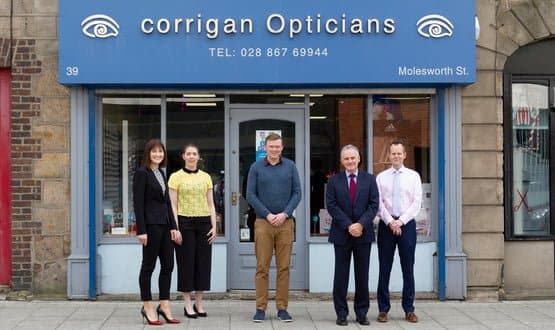Optometrists to see benefits of NIECR expansion by Orion Health
- 30 July 2019

Orion Health has expanded the capabilities of its shared care record initiative in Northern Ireland to include community optometrists, enabling access to relevant aspects of a patient’s electronic care record when delivering eye care.
For the first time, optometrists will be able to access the Northern Ireland Electronic Care Record (NIECR) to view details of any underlying health issues a patient may have that could have a direct impact on their eye care, such as diabetes.
Optometrists will also be able to see details of any medication a patient may be taking – particularly useful when considering what could be causing side effects for a patient’s vision, and preventing the optometrist from unknowingly prescribing a medication which could affect another condition the patient is suffering from, Orion said.
The added capability will ultimately lead to better continuity of care, allowing clinicians in Northern Ireland to make more informed and patient-centric approaches to decision-making.
Margaret McMullan, optometric clinical advisor at the health and social care board, explained: “The benefit of the NIECR was recently proven when an elderly patient informed a locum that they had decided to stop taking their prescribed eye drops.
“On examination it was found that their eye pressure was extremely high and through the NIECR the locum was very quickly able to find out the name of the eye drops and inform the patient’s GP and family.
“Previously this would have been a lengthy process and thereby risked damage to the patient’s eyes and a potential loss of sight.”
NIECR provides care professionals with a comprehensive record for every patient using Health and Social Care Northern Ireland (HSCNI) services.
The system provides health and social care professionals with a view of key patient information such as allergies, lab results, medications, allergies and clinical correspondence.
Today, NIECR encompasses electronic referrals from primary to secondary care, supporting radiology order communications, results sign off and, as of December 2018, a single diabetes pathway for Northern Ireland.
Through the latest expansion, optometrists can make electronic patient referrals directly to a dedicated clinical pathway, thereby increasing the speed of referral and saving time for GPs and other care professionals.
Meanwhile, consultants in secondary care can see supporting images and scans uploaded by optometrists, such as retinal images and optical coherence tomography (OCT) scans.
This provides ophthalmologists with clinical information that can assist in the triage and management of referrals.
Stephen Beattie, eHealth programme manager at HSC Business Services Organisation, said: “For the first time optometrists have access all relevant aspects of a patient’s electronic care record. This insight is already helping to improve the level of care which patients receive and will ensure that more informed decisions can be made by all of the health care professionals involved in a patient’s care.”




